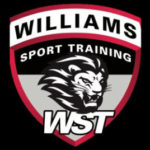The coach who restricts water probably is asking for a negligence lawsuit. All one needs to do is remember the recent deaths in football due to hyperthermia.
But here is an interesting observation by Dr. Ron Maughan of Aberdeen, Scotland, a prolific researcher in fluids and dehydration in sports and consults with the Manchester United team.
One of the projects he did was to look at a variable called urine osmolality–a statement of water levels in the body. If too high, then the body is dehydrated; too low, and the body is hyperhydrated.
He had the players from Manchester give a urine sample prior to play, and the values for nearly all the players were in the dehydrated range. This team is probably the best-cared-for team in the world, playing in an environment that is not nearly as stressful as the United States. Temperatures in the 80s are hot for them, but a relief for us in the United States. And they are dehydrated.
I doubt that any youth team in the U.S. gets fluids pushed on them as much as Manchester gets it pushed on them.
But there is more to the fluids concept, and I have discussed them in the past, but deserve mentioning again.
More Than Water
First, while water is good, a drink with a little sodium, potassium, chloride and other elements is absorbed faster by the intestine than pure water. This puts more water into the blood faster.
Don’t overdo the salts, though. Too much stuff in the drink will cause the intestines to have to dilute the intestinal contents before it can be absorbed. (Dr. Maughan tested canned, carbonated sodas and found that the intestinal contents have to be diluted first; not good. And this was done when the person was at rest; it would be even worse if the person were dehydrated, so stay away from soda after practices or games).
How much to drink? The old formula was one pint of fluid per pound of weight lost, but Maughan has refined that formula to 1.5 pints of fluid per pound of weight lost. Unfortunately, few teams have access to a scale both before and after practice. But remember, this is just the first step.
The Need for Protein
Second, there is cellular damage after any kind of exercise. As a result, there is an increased breakdown of protein during exercise. This damage is structural, and the body’s structural building materials are proteins.
Most disrupted cellular processes begin repair as soon as the stressor is removed. Protein consumed during exercise may help speed recovery following exercise. Plus, during extended exercise, protein can provide up to 20 percent of the muscle’s energy needs because the muscle is becoming depleted of glycogen.
Therefore, adding protein to a sports drink minimizes muscle protein breakdown that would then speed muscle recovery after exercise. Thus, a little protein during and after work is a good idea. But don’t interpret this to mean a triple cheeseburger is recommended. Just a little something to get the process started.
Take Your Vitamins
Third, some of the damaged tissues can come from something called oxygen radicals, a byproduct of metabolism, built up during exercise. Selected vitamins–C and E in particular–can help minimize free-radical buildup. So, getting some C and E during and after exercise is appropriate.
Load Up on Carbs
Fourth, the energy for games like soccer comes mostly from stored carbohydrates. When a player finishes a game, the carbohydrate fuel in the muscles (glycogen) can be very near empty, meaning the player is fatigued. However, if some carbs are taken in during exercise, the depletion of glycogen can be delayed. This effectively postpones fatigue, and a little protein helps get more sugar into the muscle.
Pushing fatigue later and later has two advantages. First, your team is running and the opponent is tiring right when most goals are scored. Second, a large portion of injuries happen late in the game so delaying fatigue can be considered a way to prevent injuries.
Ingestion of some carbs after training and games gets the refueling process started sooner and faster than if the process is delayed even by two hours.
“You mean I have to supply water, protein, vitamins, carbs during and after exercise?”
Only if you want your players to have a leg up on the opponents while also getting a head start at recovery for the next game or practice.
But that doesn’t mean that you have to shop multiple aisles of the grocery store. There are a variety of sports drinks on the market that can be found in grocery stores, nutrition stores or sports specialty shops (especially cycling stores).
Just check those labels. Look for electrolytes, carbohydrates, vitamins, and some protein. The current research suggests that a 4:1 ratio of carbs to protein is the best. You can cover a lot of bases with a single product and be at a competitive advantage on your opponents who aren’t as foresighted as are you.


It is essential to accelerate muscle recovery for a number of reasons. In order to get back into your fitness routine, incorporating a few healing techniques for sore muscles is essential. Whether you’re a seasoned athlete or just starting a fitness routine, giving the muscle time to repair itself is imperative to muscle recovery, which can affect your ability to exercise or train on a regular basis. No matter what your fitness level, you’ll be able to get back on track with your exercise routine by following these tips.;-.,
Have a look at the most up to date short article on our own website
<http://www.healthmedicinebook.com/